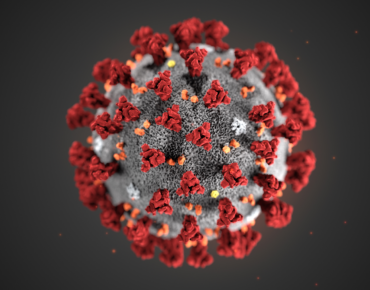What’s New in Computing vs. COVID-19: Groceries, Smartphones, Competitions & More

Artificial intelligence, big data and high performance computing are crucial tools in the fight against the coronavirus pandemic. Around the world, researchers, corporations and governments are devoting computing resources to this global crisis. This column collects the biggest news about how advanced technologies are helping us fight back against COVID-19.
IBM enlists coders to battle COVID-19
IBM has issued an anti-COVID-19 “Call for Code,” aiming to “identify, build, and deploy solutions” in the areas of community cooperation, crisis communication and remote education. IBM, which is working with the United Nations Human Rights Council and the Linux Foundation, released starter kits to aid coders. To read more about the Call for Code Global Challenge (which has an initial submission deadline of April 27), click here.
Nvidia and AMD join the COVID-19 High Performance Computing Consortium…
Both Nvidia and AMD announced they have joined the COVID-19 High Performance Computing Consortium, the U.S. government initiative that aims to bring together leaders across government, the tech industry and academia to leverage the nation’s HPC resources for COVID-19 research. Nvidia promised to deliver AI applications, science acceleration, supercomputer optimization and more, while AMD highlighted its recent contribution of Radeon Instinct MI50 accelerators for the Corona system at Lawrence Livermore National Laboratories.
… and others highlight their Consortium efforts, too.
Several other institutions announced or highlighted their participation in the COVID-19 High Performance Computing Consortium. The National Center for Atmospheric Research (NCAR) announced that it is providing its Cheyenne supercomputer to the effort; the San Diego Supercomputer Center (SDSC) announced that it is providing priority access to its Comet and Triton systems for COVID-19 researchers; the National Energy Research Scientific Computing Center (NERSC) reserved time on its Cori system for coronavirus research; and Indiana University promised priority access of its Jetstream cloud HPC system to COVID-19 researchers.
Corona-AI project aims to crowdsource smartphones to create ‘virtual supercomputer’
 The Vodafone Foundation and researchers from Imperial College London are aiming to crowdsource smartphone resources to create a virtual supercomputer. The researchers are asking volunteers to download the DreamLab app and activate it when they go to sleep. Using the collective resources, the researchers will seek to identify existing drugs and food-based molecules that may benefit COVID-19 patients; then, in the second phase, the researchers will optimize combinations of those drugs and molecules to provide potential treatments and nutritional advice. To read more, click here.
The Vodafone Foundation and researchers from Imperial College London are aiming to crowdsource smartphone resources to create a virtual supercomputer. The researchers are asking volunteers to download the DreamLab app and activate it when they go to sleep. Using the collective resources, the researchers will seek to identify existing drugs and food-based molecules that may benefit COVID-19 patients; then, in the second phase, the researchers will optimize combinations of those drugs and molecules to provide potential treatments and nutritional advice. To read more, click here.
APAC HPC-AI competition expands to include COVID-19 issues
The HPC-AI Advisory Council and the National Supercomputing Centre Singapore announced that they have expanded the 2020 APAC HPC-AI competition to include COVID-19 issues. Teams will be asked to research and select an HPC or AI application that could be used to fight COVID-19, then demonstrate testing and benchmarking of the application. The teams will also work to tune and accelerate a high-performance molecular dynamics code used in COVID-19 research. To read more, click here.
Researchers use supercomputers to test COVID-19 spread in grocery stores
With grocery shopping remaining one of the few regular activities that most people still have to partake in, uncertainties cloud the risk associated with being in a communal space like a grocery store. A team of Finnish researchers used the Puhti supercomputer to model how aerosol particles from a cough travel through a grocery store, demonstrating that COVID-19 particles could linger in the air for several minutes after the cougher has walked away. To read more, visit HPCwire’s coverage here.
Eni’s supercomputer joins the fight against COVID-19
Italian energy company Eni has committed its HPC5 supercomputer to COVID-19 research as part of the Exscalate4CoV project. In collaboration with Exscalate4CoV partners like Dompe and Cineca, Eni researchers will help carry out molecular dynamics simulations of COVID-19’s viral proteins to help identify potential vaccines or therapeutics. To read more, click here.
Alibaba highlights COVID-19 research on its cloud HPC services
For researchers who do not have direct access to HPC systems, cloud HPC is crucial. Alibaba highlighted research conducted on its cloud HPC services – which it has offered to COVID-19 researchers free of charge – over the last couple of months. The activities include AI-powered diagnosis tools, data repositories, drug and therapeutic analysis and more. To read more, visit HPCwire’s coverage here.
Spanish researchers introduce HPC-ready COVID-19 spread simulator
 Apart from drug development and diagnosis, HPC can also be used for rapid epidemiological analysis. A group of Spanish researchers modified an existing HPC-ready epidemiology tool to conduct COVID-19 analyses. Using the tool, which analyzes social media posts, demographic data and geographic data to simulate spread among a population, they analyzed a series of scenarios for COVID-19 spread in Spain, highlighting how certain policies help curb the spread. To read more, click here.
Apart from drug development and diagnosis, HPC can also be used for rapid epidemiological analysis. A group of Spanish researchers modified an existing HPC-ready epidemiology tool to conduct COVID-19 analyses. Using the tool, which analyzes social media posts, demographic data and geographic data to simulate spread among a population, they analyzed a series of scenarios for COVID-19 spread in Spain, highlighting how certain policies help curb the spread. To read more, click here.
Do you know about COVID-19 research that should be featured on this list? If so, send us an email at oliver@taborcommunications.com. We look forward to hearing from you.











